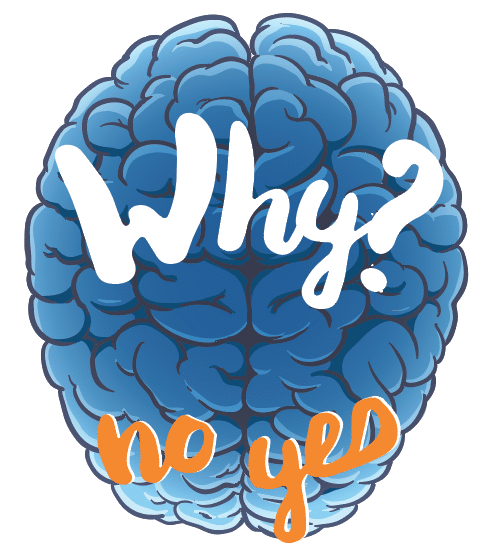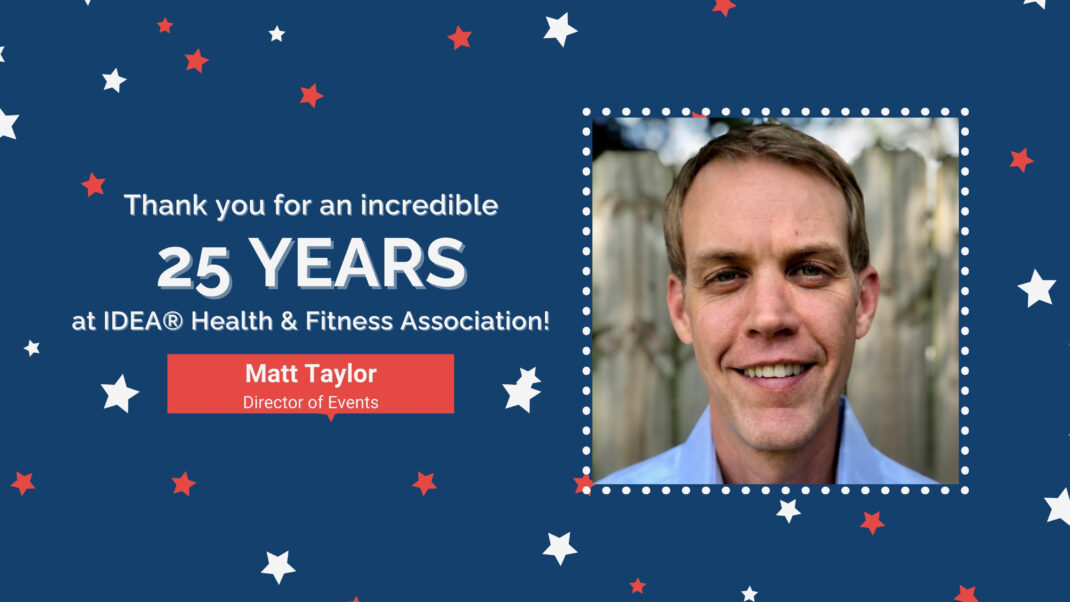Understanding Overeating
Research says it's time to stop pushing willpower and start asking why clients eat too much.
| Earn 1 CEC - Take Quiz

They hear it every day: “Eat less and move more.” Yet, despite their best efforts, many clients fail to limit their caloric intake. Perhaps there’s a better way: Rather than pushing clients to eat less, we should be asking why they struggle with overconsumption.
It’s often assumed that overeaters lack willpower. In the American Psychological Association survey Stress in America: Our Health at Risk, respondents named lack of willpower as their biggest barrier to adopting healthier behaviors (APA 2012). But faulting oneself for lack of willpower is a fallacy.
“Studies show we have limited amounts of willpower to draw on,” says Teresa Vogt, MEd, a health educator in Colorado Springs, Colorado. “It’s not an efficient tool for something that we do multiple times a day—like eating.”
Research suggests willpower—the capacity to delay immediate gratification for long-term reward—is not endless. One study tested willpower by placing people in a room with two bowls: one with radishes and the other with fresh-baked chocolate-chip cookies. Half the subjects were asked to eat only cookies, while the other half were asked to eat only radishes. Later, both groups worked on an unsolvable puzzle while researchers measured how long they persevered. Those forced to resist the temptation of chocolate-chip cookies gave up more quickly than those who didn’t, suggesting willpower depletion (Baumeister et al. 1998).
Many studies since then have revealed the same truth: Willpower is like a muscle that fatigues with continued exertion (Baumeister 2012).
Willpower may be especially ineffective at resisting the temptation to eat. Like a muscle, willpower needs glucose for fuel (Gailliot et al. 2007). Thus, using willpower to limit caloric consumption is a Catch-22. Abstaining from eating taxes willpower, thereby reducing glucose supplies and causing subsequent willpower depletion.
“If you try to control your appetite with willpower, you will fail,” says Mark Hyman, MD, medical director of the Cleveland Clinic’s Center for Functional Medicine and founder of The UltraWellness Center. “We can starve ourselves with short-term voluntary control, but then our bodies compensate by slowing our metabolism and dramatically increasing appetite.”
If a “weak will” isn’t to blame for overeating, what is? Research points to biological and psychological explanations.
The Biology of Overeating
Our bodies overreact if they don’t get enough food or nutrients. “Overeating goes hand in hand with undereating,” Vogt explains. “This undereating/overeating cycle can last a day (by skipping a meal and binging later), a week (dieting through the week and overindulging on the weekends) or months (restricting for periods of time and binging once you allow yourself permission to eat).”
Further, eating nutritionally poor foods can amplify hunger. “[Having] nutritional deficiencies or not eating enough of the right foods can lead to overeating the wrong foods,” Hyman says. “Research shows that low blood-sugar levels are associated with lower overall blood flow to the brain, which means more bad decisions, like reaching for sugary and starchy foods. This creates a vicious cycle of hunger and cravings.”
Stress and sleep deprivation can also stimulate overconsumption, initiating hormonal changes that increase appetite (Yau & Potenza 2013; Spiegel et al. 2004).
Finally, obesity can alter our biology to encourage overeating. “It’s difficult for obese individuals to lose weight because the adipose cells generated to store fat want to stay alive,” says Liana Tsirklin, MS, lifestyle educator at Kaiser Permanente in San Diego. “They act like endocrine organs, altering the secretion of hormones that control hunger and appetite. Leptin, the hormone responsible for satiety, becomes suppressed, which leads to a lack of fullness signaling to the brain.” This helps explain why people who are obese can have a tough time managing food intake.
Addressing Appetite and Consumption
In combating overconsumption, the first step is to address the biological causes of excessive appetite. “Have clients track intake and cravings throughout the day to help them recognize when they’re undereating or malnourished,” Vogt says. “This can highlight vitamins, minerals or other foods they may be missing.” She also suggests monitoring stress and subsequent eating patterns. Once clients recognize this stress–overeating relationship, they can shift their efforts from caloric restriction to stress management.
Hyman says breakfast is crucial to fighting overconsumption. “Eat a nutritious breakfast with some protein like eggs, protein shakes or nut butters,” he recommends. “Studies repeatedly show that eating a healthy breakfast helps people maintain weight loss.” Further, Hyman suggests eating every 3–4 hours to manage blood-sugar levels, eliminating added sugar and artificial sweeteners to reduce cravings, and prioritizing 7–8 hours of sleep each night.
Dealing With Psychological Factors
Emotions have a huge influence on how we eat. “When it comes to the heart, we may choose to express virtually any emotion by eating, whether it’s to comfort ourselves when we’re sad, celebrate when we’re happy, procrastinate when we’re stressed or entertain ourselves when we’re bored,” says Tsirklin.
Eating to manage emotions can quickly become problematic. “With overeating, there’s usually another root issue that isn’t being addressed. Overeating is a way to create a secondary problem when the root problem is too overwhelming to process,” says Carly Pollack, MS, founder of Nutritional Wisdom. “The guilt and shame associated with overeating create feelings of unworthiness. People then overeat for comfort from that feeling, and the vicious cycle continues.”
Managing Emotional Eating
When you suspect that a client struggles with emotional overeating, you can help by steering conversations away from food. “When I find myself reaching for junk food, I ask myself two questions,” says Hyman, “One, what am I feeling? Two, what do I need? Am I sad and needing to talk to a friend? Do I feel tired and need to sleep?” Encourage clients to discover and address unmet needs that trigger overconsumption.
Tsirklin recommends explaining the difference between hunger and appetite. “Hunger is the physiological need for food, as dictated by the stomach growling or contracting. This can also manifest in an inability to think clearly or focus. Appetite, on the other hand, reflects our psychological desire to eat.”
By helping clients understand true hunger, you can make them more aware of other needs manifesting as the desire to eat and help them find healthier coping strategies.
Tsirklin recommends motivational interviewing (MI) for clients with emotional-eating problems. “MI is an excellent tactic to allow clients to unpack emotions that lead to overeating and [help people] find more productive coping mechanisms,” she says. MI is a nonjudgmental, client-centered way to raise awareness of the potential precursors, risks and consequences of a given behavior (Brodie, Inoue & Shaw 2008). (For more on motivational interviewing, see www.integration.samhsa.gov/clinical-practice/motivational-interviewing.)
As a health and fitness professional, you can take on a supportive role, helping clients to explore why they overeat and allowing them to become the drivers of their own behavior change. “Make clients feel that they’re consistently coming into a safe environment where they can be honest and not worry about your reactions,” Tsirklin says. “Meet them where they’re at, not where they ‘should be.’”
Forget About Willpower
Moving your focus away from willpower can help expand the conversation around overeating. This shift can reduce guilt- or shame-related eating and allow people to explore the personal factors promoting overconsumption.
Low levels of certain nutrients play a role in overconsumption. “When vitamin D levels are low, the hormone that helps turn off your appetite doesn’t work, and people feel hungry all the time, no matter how much they eat,” says Mark Hyman of the Cleveland Clinic’s Center for Functional Medicine. He also notes that low levels of omega-3 fatty acids can alter insulin control, increasing hunger.
Hyman recommends working with a functional-medicine doctor to optimize vitamin D and omega-3 fatty-acid levels and consider other natural supplementation. “Glutamine, tyrosine and 5-HTP are amino acids that all reduce cravings,” he says. “Rhodiola, which reduces stress, and chromium, which balances blood sugar, can also help.”
Brian Wansink, PhD, director of the Cornell Food and Brand Lab, knows that when it comes to overconsumption, your surroundings matter. His research has shown that the layout of a kitchen or office space, the proximity of food on the dinner table and even the size of your dining companions can influence your intake. “What we’re looking at here are small environmental changes that make a big difference,” Wansink says.
Home is the best place to start. “One of the easiest ways to eat less is simply putting out a fruit bowl. Every time you walk by, it’s a visual reminder to eat healthier, in the same way that a cookie jar on your counter reminds you of something very different.”
Wansink also suggests making your kitchen less “loungeable.” “The more we hang out there, the more we start looking for things to do—and the main thing to do in your kitchen is eat.” He recommends moving iPads, TVs and comfy chairs out of the kitchen and into areas with fewer temptations.
Finally, he promotes an attitude of gratitude. “Simply stating one thing you’re grateful for before you eat can improve your eating choices,” he says. “A quick word of thanks makes a big difference.”
References
APA (American Psychological Association). 2012. Stress in America: Our Health at Risk. Accessed Dec. 14, 2016: www.apa.org/news/press/releases/stress/2011/final-2011.pdf.
Baumeister, R.F. 2012. Where has your willpower gone? New Scientist, 213 (2849), 30–31.
Baumeister, R.F., et al. 1998. Ego depletion: Is the active self a limited resource? Journal of Personality and Social Psychology, 74 (5), 1252–65.
Brodie, D.A., Inoue, A., & Shaw, D.G. 2008. Motiva-tional interviewing to change quality of life for people with chronic heart failure: A randomised controlled trial. International Journal of Nursing Studies, 45 (4), 489–500.
Gailliot, M.T., et al. 2007. Self-control relies on glucose as a limited energy source: Willpower is more than a metaphor. Journal of Personality and Social Psychology, 92 (2), 325–36.
Spiegel, K., et al. 2004. Sleep curtailment in healthy young men is associated with decreased leptin levels, elevated ghrelin levels, and increased hunger and appetite. Annals of Internal Medicine, 141 (11), 846–50.
Yau, Y.H., & Potenza, M.N. 2013. Stress and eating behaviors. Minerva Endocrinologica, 38 (3), 255–67.






